Featured
- Reset filters
- 68 results
- (-) Lebanon
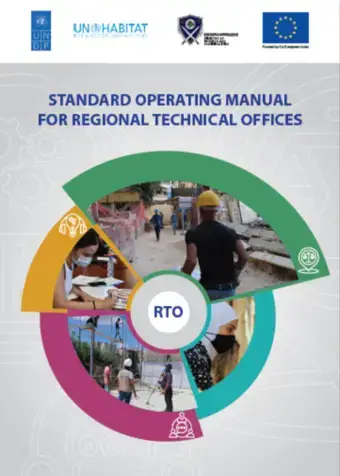
Toolkits, Manuals and Guides
Standard Operating Manual for Regional Technical Offices
2022
The aim of the RTO is to guide the union to move from emergency response to recovery planning by providing technical and engineering assistance in municipal projects, as well as by supporting decision-making processes, enhancing service delivery, and addressing governance issues at the regional level.
Learn more
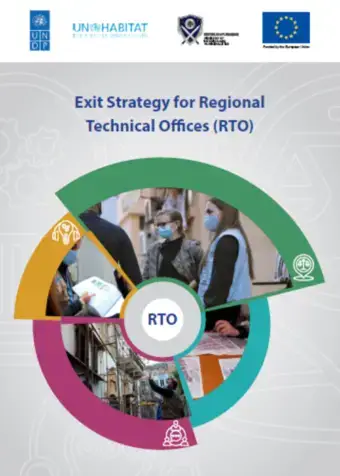
Policy and Strategy
Exit Strategy for Regional Technical Offices
2022
The aim of the RTO is to guide the union to move from emergency response to recovery planning by providing technical and engineering assistance in municipal projects, as well as by supporting decision-making processes, enhancing service delivery, and addressing governance issues at the regional level.
Learn more
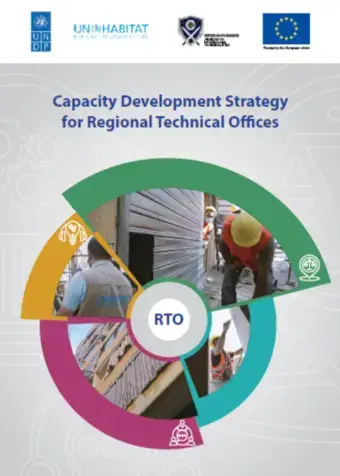
Policy and Strategy
Capacity Development Strategy for Regional Technical Offices
2022
Regional Technical Offices (RTOs) were established by UN-Habitat in 2007 in order to empower unions of municipalities (UoMs) in emergency responses, planning, and development, and specifically to support reconstruction and development in Lebanon.
Learn more
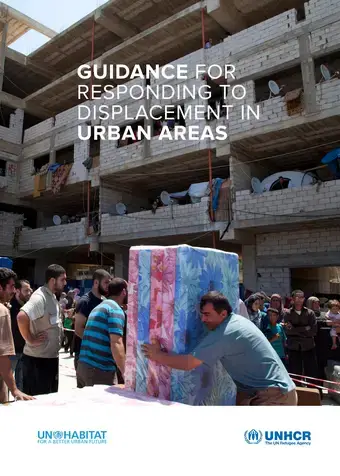
Toolkits, Manuals and Guides
Guidance for Responding to Displacement in Urban Areas
2022
UN-Habitat and UNHCR have been working together to advance their shared mandate to improve assistance for UNHCR’s persons of concern (PoC), and to maximize synergies along the humanitarian-development continuum. This guidance identifies key considerations to build upon organizational mandates to protect vulnerable populations through inclusive and sustainable urban planning.
Read now
Learn more
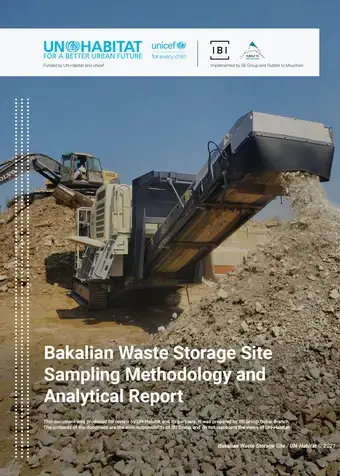
Technical Report
Bakalian Waste Storage Site Sampling Methodology and Analytical Report
2021
Under the guidance of UN-Habitat Lebanon, and as part of the emergency response to the massive explosion at the Port of Beirut on August 4, 2020, IBI Group was commissioned to provide technical oversight and testing for a small-scale trial on the reuse of construction and demolition waste (CDW) for environmentally sustainable urban-restoration developments.
Read now
Learn more
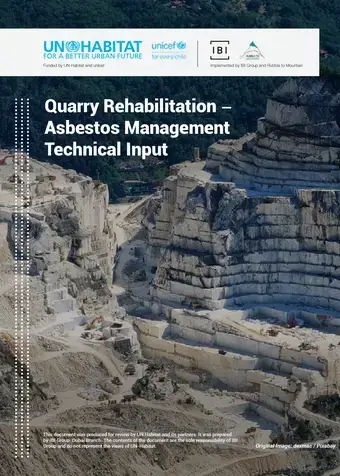
Toolkits, Manuals and Guides
Quarry Rehabilitation – Asbestos Management Technical Input
2021
Under the guidance of UN-Habitat Lebanon, and as part of the emergency response to the massive explosion at the Port of Beirut on August 4, 2020, IBI Group was commissioned to provide technical oversight and testing services for the Rubble to Mountains initiative, a project aimed at reusing construction and demolition waste (CDW) in environmentally sustainable urban-restoration developments.
Read now
Learn more
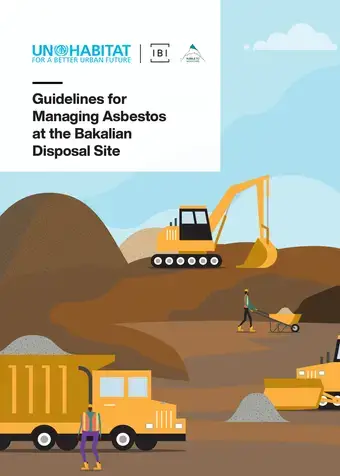
Toolkits, Manuals and Guides
Guidelines for Managing Asbestos at the Bakalian Disposal Site
2021
The Guidelines for Managing Asbestos at the Bakalian Disposal Site has been prepared by IBI Group, under the direction of UN Habitat, Arcenciel, and the Rubble to Mountains initiative, to guide the investigation, remediation, and management of potential asbestos-contaminated debris stockpiled from the recent Port of Beirut explosion at the Bakalian Disposal Site. These guidelines are based on Canadian, British, and international best practices and tailored to Lebanese conditions.
Read now
Learn more
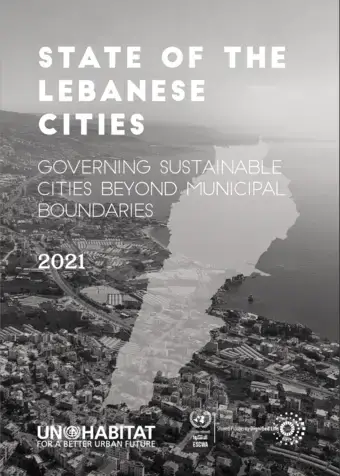
Country Report
UN-Habitat Lebanon & ESCWA State of Lebanese Cities 2021
2021
The State of the Lebanese Cities Report presents primary and secondary data and analysis across themes relevant to sustainable development in Lebanon as an overwhelmingly urban country. Following decades of rapid and unplanned urban expansion resulting in dire inequalities in access to services and infrastructure within and between cities which have been exacerbated by the compound crisis emerging since 2019.
Read now
Learn more
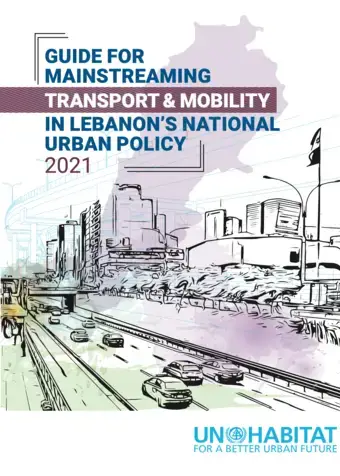
Toolkits, Manuals and Guides
Guide for Mainstreaming Transport and Mobility in Lebanon’s National Urban Policy
2021
The transport sector in Lebanon is considered one of the most unsustainable in the Middle East region, due to weak governance structures and regulatory frameworks, the absence of a modern and reliable public transport system, and a car-friendly culture dominated by large old-model polluting cars. Lebanon lacks an integrated and inclusive transport system, with mostly informal public transport services and very limited infrastructure for alternative transport means.
Read now
Learn more
Document
HSP/EB.2024/4- Report of the midterm review of the strategic plan of UN-Habitat for the period 2020–2025
Posted on April 17th, 2024
Read now